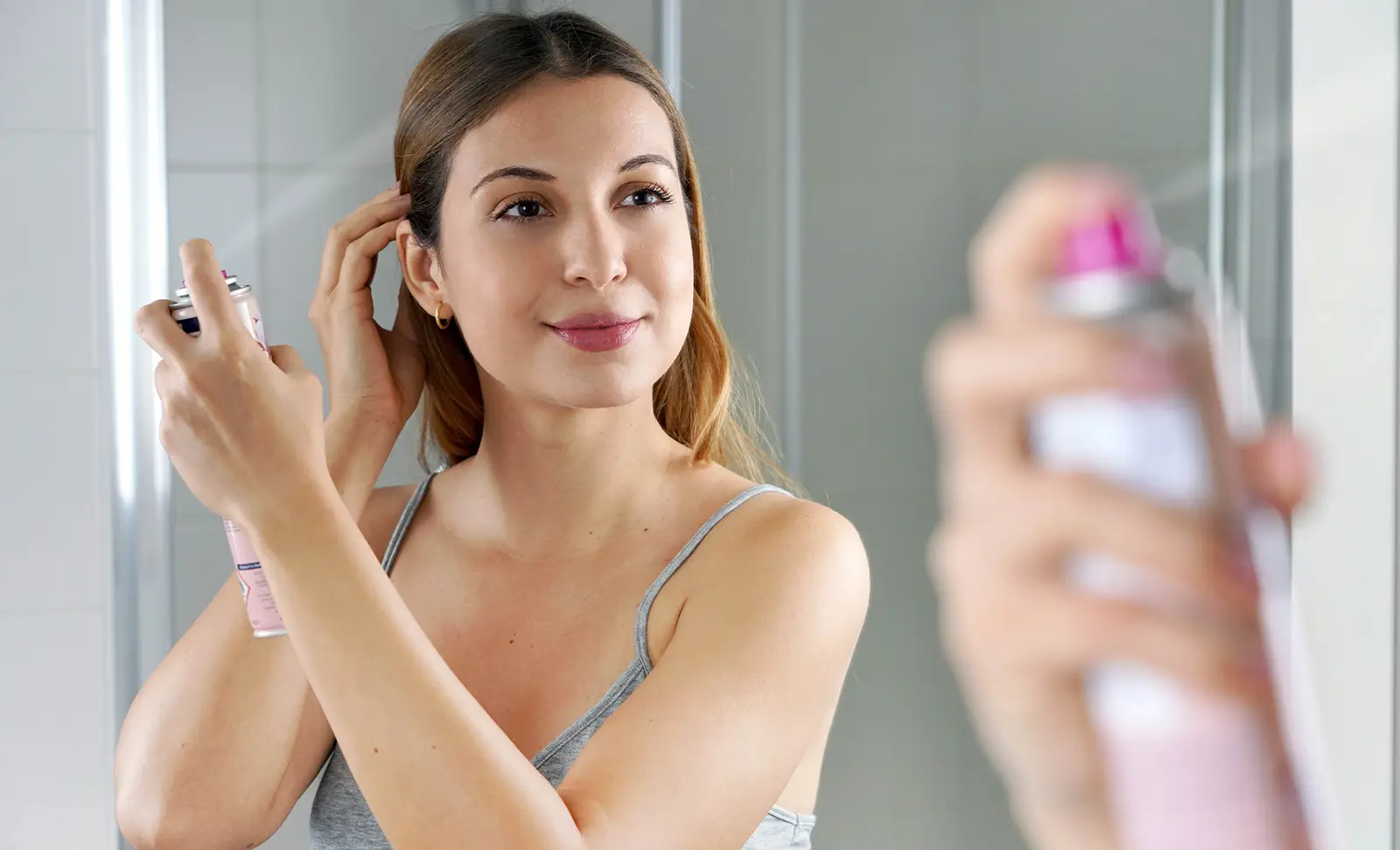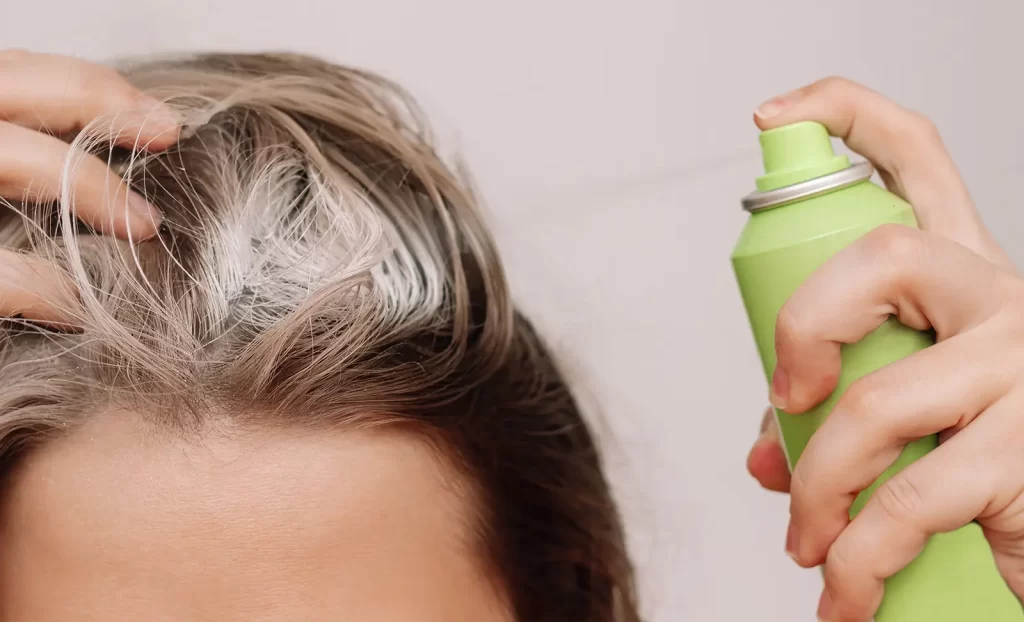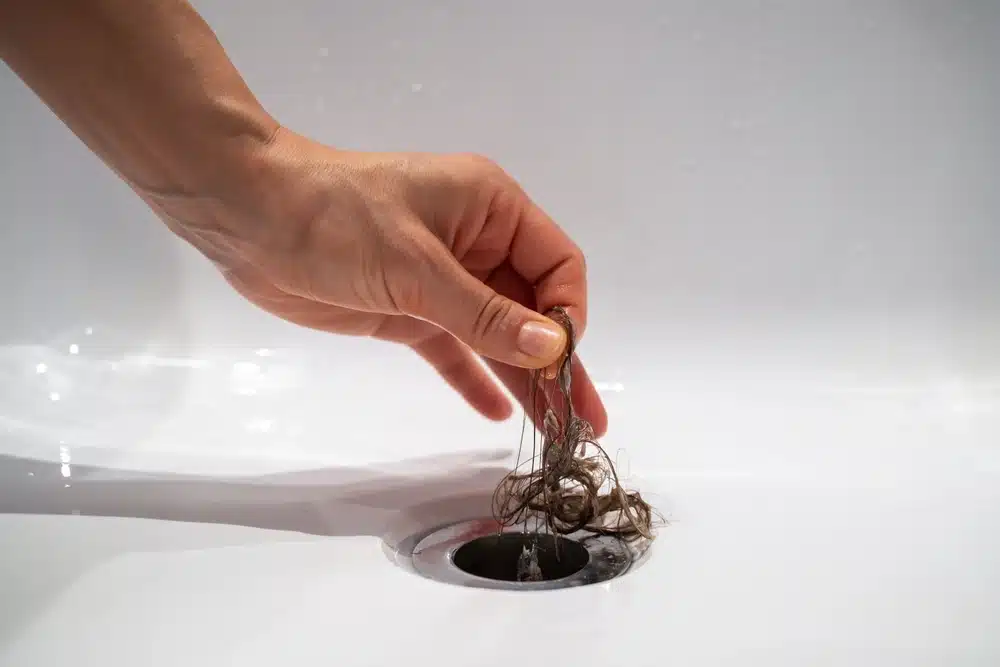Most people have used a spritz of dry shampoo at some point or another. For many, it acts as a lifesaver, soaking up all their hair oil to avoid that dreaded greasy look. However, it’s true that there can be too much of a good thing, and that includes dry shampoo. Use too much, and you’ll likely end up with a dry, itchy scalp. Plus, there may even be another, more serious problem that could occur: hair loss.
About Dry Shampoo
Dry shampoo is almost like a miracle: a way to shampoo your hair without having to go through the effort of physically washing and drying your locks. Dry shampoo works by soaking up all of the oils and grease on your scalp, leaving your hair looking much fresher than before. Common ingredients include aluminium, rice, keratin, alcohol, and often a fragrance. When combined, these ingredients work well to keep the oils at bay, but they can also lead to damage in some cases.
So, Does Dry Shampoo Cause Hair Loss?
The idea of dry shampoo potentially causing your hair to thin or even fall out may have you throwing your bottle away immediately, but don’t be too hasty, as your hair is unlikely to fall out from using a bit of dry shampoo.
The truth is that dry shampoo and hair loss do not have a direct link. However, it can cause damage to the scalp and strands, potentially leading to hair breakage.
How Dry Shampoo May Damage Your Hair
It helps to understand how dry shampoo may damage your hair over time – particularly when overusing dry shampoo.
An Excessive Build-up: Dry shampoo absorbs excess oil, which gives the appearance of freshly washed hair. However, it doesn’t do everything that a proper shampoo does – it doesn’t remove dead skin cells from the scalp, for example. As a result, using too much dry shampoo can lead to a build-up.
Brittle Hair: Using too much dry shampoo can leave your strands far too dry and brittle.
An Irritated Scalp: If you use too much dry shampoo, you may end up with a dry, itchy scalp that feels irritated. In the worst cases, you may experience inflammation. That often happens because you are clogging the hair follicles.
Hair Breakage: The drying part of dry shampoo can quickly lead to hair breakage with improper use. That is because it dries the hair out, making it more susceptible to breakage when you next brush or style your hair.
An Allergy: If you have an allergy to one of the ingredients in dry shampoo, that will, of course, cause issues. You will likely know if you have a dry shampoo allergy because of the symptoms such as burning, itching, and general irritation.
Scalp Infections: In some cases, dry shampoo can even lead to a scalp infection, such as a bacterial or fungal infection. This occurs because of the build-up of dry shampoo, which can lead to the overgrowth of fungus or the trapping of bacteria.
Folliculitis: Folliculitis is a rare type of inflammation that targets your scalp and hair follicles and can lead to hair loss. Dry shampoo may trigger folliculitis if a person leaves the product in the hair too long or uses excessive amounts. If this happens, it can then lead to hair loss.
As you can see, dry shampoo has its risks – predominantly, drying out the hair and causing breakage. In the worst scenarios, it could lead to an infection or folliculitis, which can cause the hair to fall out. So, while dry shampoo doesn’t directly cause hair loss, it may be linked. You can use a hair track app to monitor your hair’s growth rate – this can be helpful after using a new product.
How to Use Dry Shampoo to Avoid Damage
Don’t worry – that doesn’t mean you can never use dry shampoo again! People with healthy hair can use dry shampoo quite regularly, in fact. Here’s how to use dry shampoo to avoid excessive damage:
Find the Right Dry Shampoo Product
You should always start with the right product. Some dry shampoos work better for certain hair types, so consider how oily or dry your hair is before choosing one. If you have dry hair, you may not need a product that absorbs as much oil as someone who has a very greasy scalp! Some of the best dry shampoo brands include Ouai, Amika, and Davines.
Don’t Apply Too Much
This one’s important – don’t apply more dry shampoo than you need to! Spraying too much on the scalp will only lead to a build-up of the product and cause irritation. Plus, you’ll get that dry, powdery feeling.
Apply Only Wear Needed
As well as not applying too much, you should be selective about where you apply it. If your fringe gets greasy but the rest of your hair is fine, only spray a little on the fringe and leave the rest of your scalp alone.
Spray at a Distance
You don’t need to get up close and personal with a dry shampoo bottle. If you’re using a spray bottle rather than a powder, keep it at least six inches away from your scalp while you spray (although you can hold it even further away). By spraying at a distance, you avoid leaving patches of your hair looking chalky and feeling too dry.
Move the Bottle While You Spray
To avoid spraying too much in one area, move the bottle around your head while you spray. That way, the dry shampoo can be spread evenly across the scalp without too much build-up in a single area. Of course, if you only need to apply to one area, you don’t need to do this – instead, stick to short bursts only where you need it.
Wash Hair on the Third Day
You should only use dry shampoo for two days in a row at maximum. On the third day, it’s time to wash your hair with actual shampoo. That way, you avoid excessive dryness, brittleness, and potential breakage. Plus, having freshly cleaned hair will feel good!
Stop Using if You Experience Issues
If you experience any problems after using dry shampoo, stop using it immediately and wait for your hair and scalp to recover. Whether you have an allergic reaction, an irritated scalp, or breakage of the strands, stopping using the stuff will prevent further damage from occurring.
Don’t Over-Rely on Dry Shampoo
Dry shampoo is a pretty incredible creation, but that doesn’t mean it’s as good as actual shampoo. Avoid over-relying on it, as you may end up with an excessive build-up of the product, as well as hair oils and dead skin cells. Use it when needed, and only when needed.
Is Your Hair Loss from Dry Shampoo?
If you are experiencing hair loss, you may wonder if your use of dry shampoo has caused it. The chances are that it wasn’t the dry shampoo, as there are many other causes of hair loss that are far more common. However, if your hair has experienced damage because you’ve used a lot of dry shampoo without enough breaks, it could be that you’ve damaged your hair follicles, and it has led to breakage. In this case, you should stop using the dry shampoo and wait for your hair to grow back.
Do You Have More Permanent Hair Loss?
Dry shampoo would rarely lead to permanent hair loss. Permanent hair loss is often caused by things like androgenetic alopecia, a genetic type of hair loss that affects both men and women. [1] In this case, you’ll need to look at a hair loss treatment that stimulates new hair growth.
Hair Restoration Options
Minoxidil: Minoxidil is a hair loss medication that stimulates hair growth by boosting blood flow to the scalp. It’s commonly used by both men and women and produces fantastic results when used daily.
Finasteride: Finasteride is another hair loss medication, only this one is just for men. It works by stopping the production of DHT, a hormone that can cause male pattern baldness.
Light Therapy: Low-level light therapy is often used to stimulate the scalp and boost blood flow. It can produce excellent results after just a few sessions.
Hair Transplant: A hair transplant is the best hair restoration solution for those with androgenetic alopecia, as it’s a permanent solution that involves one procedure (you won’t need to take daily medication, for example). The FUE hair transplant method is best, as it’s a minimally invasive surgical procedure that leaves little to no scarring.
Does Dry Shampoo Cause Hair Loss: Final Thoughts
So, the answer to the question, “Does dry shampoo cause hair loss?” isn’t exactly straightforward – it doesn’t directly cause hair loss, but excessive use may contribute to it. That’s why it’s so important to follow the dry shampoo’s instructions to a tee and avoid using too much of it. Otherwise, you’ll end up with a dry, itchy scalp and potential breakage.
Have you experienced hair loss and are looking for a permanent solution? You are in the right place – we have a team of highly skilled surgeons providing high-quality hair transplants right here at our clinic in Harley Street, London. Get in touch today or look at our patients gallery to see what we can do for you and your locks.
Sources:
- https://medlineplus.gov/genetics/condition/androgenetic-alopecia/





